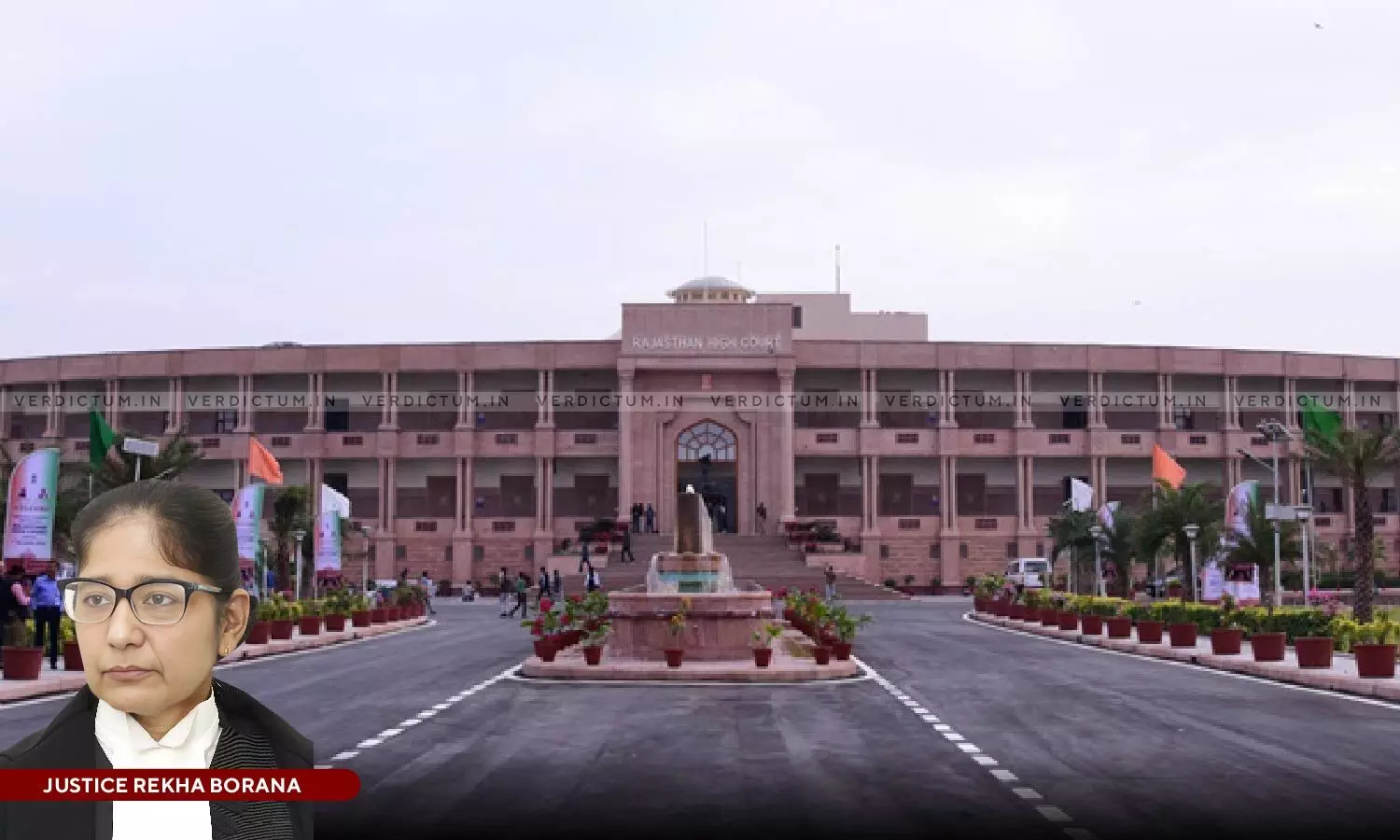
Rajasthan High Court
Fraud Committed Cannot Be Permitted To Be Given A Go-By: Rajasthan High Court Upholds Blacklisting Of Solar Developer For Submitting Duplicate Land Documents
 |
|The Court said that once the fraud was proved, the Central Transmission Utility of India was entitled to sever future business relations, and blacklisting could not be deemed to be arbitrary or without legal foundation.
The Rajasthan High Court has upheld the decision of the Central Transmission Utility of India Ltd. (CTU) to blacklist a solar power developer for three years after it was found to have submitted duplicated and mismatched land documents in its Stage-II connectivity applications for a total capacity of 1800 MW.
A Single Bench of Justice Rekha Borana observed, “Once it was proved on record that the Petitioner-firm had committed a fraud, the Respondent-CTU definitely was empowered to take a decision not to enter into any contractual relationship with the Petitioner-firm in future. The action of the Respondent-CTU therefore cannot be said to be arbitrary or against any provision of law.”
The Court added, “Fraud committed whenever and wherever, has to be taken care of and the same cannot be permitted to be given a go-by.”
Senior Advocate Vikas Balia appeared for the Petitioners, while Advocate Alok Shankar represented the Respondent.
Brief Facts
The Petitioner was authorised by the Government of Rajasthan to develop a solar park and had applied for Stage-I connectivity for 600 MW and 1200 MW capacities, which were granted in December 2021 and January 2022, respectively. It later applied for Stage-II connectivity in three separate applications, totaling 1800 MW, and executed transmission agreements with the CTU.
Subsequently, the Respondent received complaints alleging that the Petitioner had uploaded identical land documents for multiple applications, and that some registration endorsements did not match the corresponding parcels of land, resulting in a show-cause notice being issued.
The Petitioner replied that the documents had been uploaded due to inadvertent errors and clerical mistakes. It later withdrew all three Stage-II connectivity applications. The transmission agreements were terminated, and the Petitioner’s bank guarantee was encashed.
However, the CTU thereafter issued the blacklisting order, debarring the Petitioner from further engagement for three years. This order was challenged in the writ petition.
Reasoning of the Court
The Court rejected the Petitioner’s submission that blacklisting amounted to double jeopardy, noting that the Show Cause Notice had clearly mentioned the possibility of blacklisting and that the termination of connectivity agreements had been accepted “without prejudice” to the CTU’s rights.
Referring to the law on blacklisting, the Court noted, “The authority of State to blacklist a person is a necessary concomitant to the executive power of the State to carry on the trade or the business and making of contracts for any purpose. There need not be any statutory grant of such power. The only legal limitation upon the exercise of such an authority is that State is to act fairly and rationally without in any way being arbitrary.”
The Court noted that the Petitioner had been granted a fair opportunity of hearing, stating, “It is not denied that the Petitioner-firm after being served with notice dated 04.08.2022, applied twice for extension of time to file reply and the same was granted both the times. Further, the Petitioner-firm prayed for personal hearing and that too was granted. Therefore, it is crystal clear that a fair opportunity of hearing was very well granted to the Petitioner-firm by the Respondent-CTU.”
The Bench noted that the Petitioner had violated its own undertaking by using the same documents for more than one application, observing, “It is clear that the Petitioner-firm annexed the same land documents with two different applications which was in total contravention to the conditions of the regulations and in contravention to the undertaking given by it.”
The Rajasthan High Court found that the CTU had only acted on what was already established through the Show Cause Notice and the Petitioner’s reply. “CTU definitely, vide communication dated 31.08.2022, reserved its rights to act further regarding the infirmities. Therefore, it cannot be held that after termination of the agreements, CTU could not have acted further in the matter”, the Court added.
Noting that the CTU’s decision was not arbitrary or disproportionate, the Court held, “The Respondent-CTU therefore cannot be said to be arbitrary or against any provision of law. The same being totally in consonance with the settled position of law, the order impugned does not deserve any interference.”
The writ petition was accordingly dismissed.
Cause Title: M/s Soltown Infra Private Limited & Ors. v. Central Transmission Utility of India Ltd. (Neutral Citation: 2024:RJ-JD:38136)
Appearance:
Petitioners: Senior Advocate Vikas Balia; Advocates Aditya Kumar Singh, Devendra Khatri, Anukriti Jain, Ashok Choudhary
Respondent: Advocates Alok Shankar, Falgun Buch, Gopal Kishan Chhangani